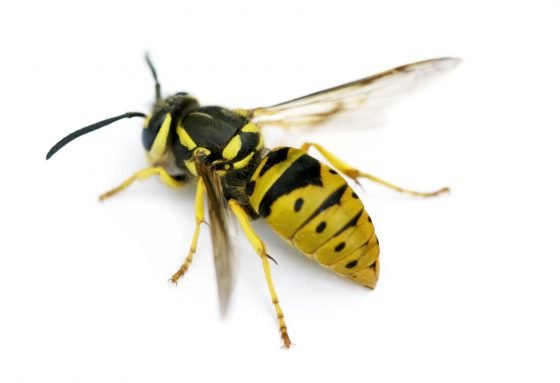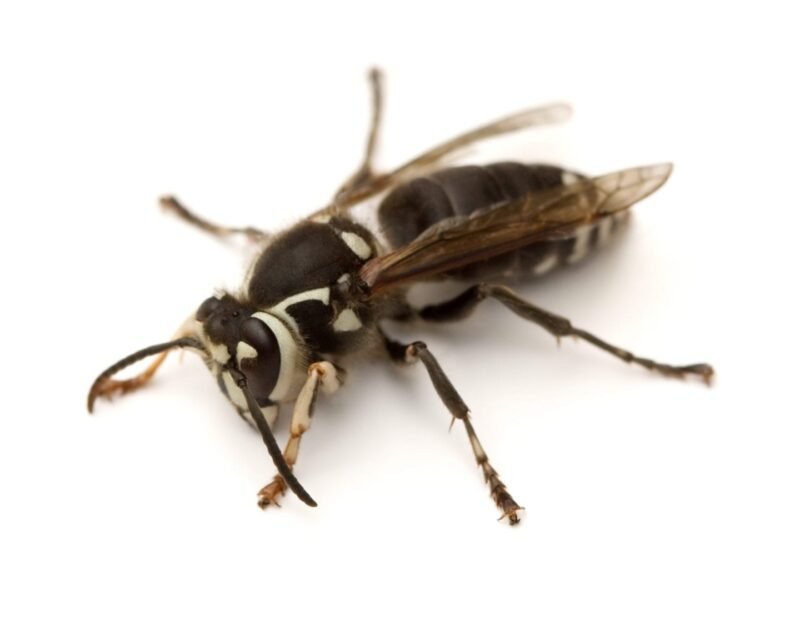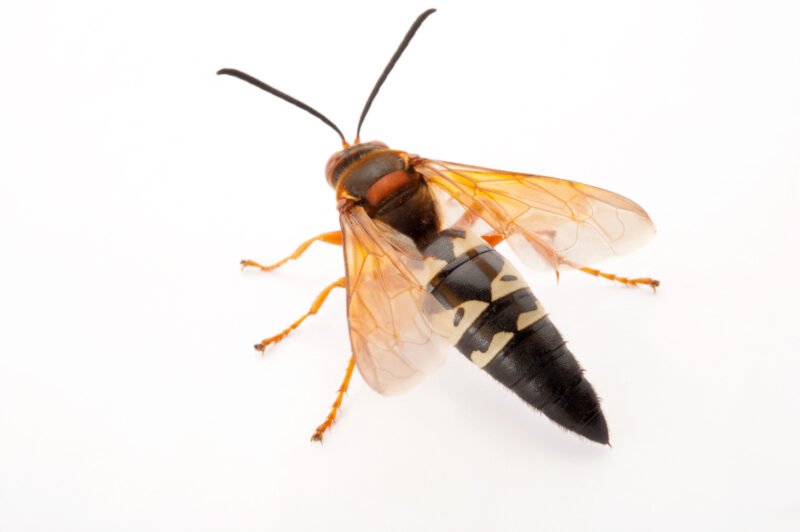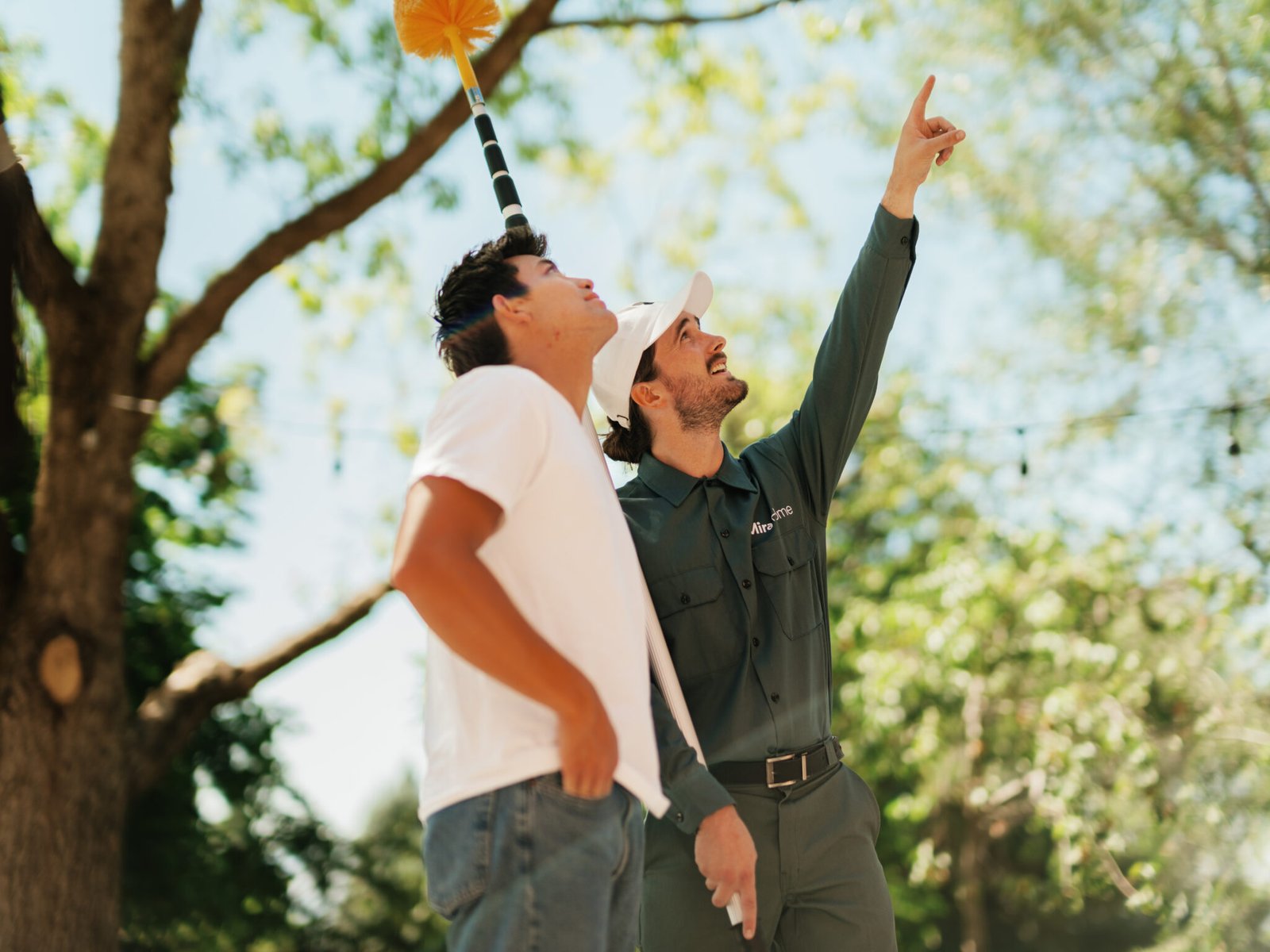Wasps are a common sight in Georgia, particularly during the warmer months. While these insects play a crucial role in the ecosystem by controlling other pests and pollinating plants, their presence around homes can raise safety concerns. From their ability to sting repeatedly to their often-hidden nests, wasps can quickly become a nuisance or even a danger. This guide will help you identify the most common wasps in Georgia, understand their behaviors and risks, and learn how to prevent or address infestations safely.
Paper Wasps
- Identification: Slender body with long legs, reddish-brown or black coloration, and yellow markings (Polistes spp.).
- Behavior: Paper wasps construct umbrella-shaped nests under eaves, decks, or tree branches. They are generally non-aggressive but will defend their nests if provoked.
- Risks: Their stings are painful and can lead to swelling or allergic reactions. Disturbing their nest can result in aggressive behavior.

Yellowjackets
- Identification: Stocky bodies with bold black and yellow patterns (Vespula spp.).
- Behavior: These highly aggressive wasps build nests underground or inside wall cavities. They become especially troublesome in late summer when food becomes scarce.
- Risks: Yellowjackets can sting multiple times and attack in groups, posing a significant risk to anyone nearby.

Bald-Faced Hornets
- Identification: Black and white body with a rounded shape (Dolichovespula maculata).
- Behavior: Bald-faced hornets build large, paper-like nests in trees or on structures and are extremely protective of their nests.
- Risks: Their stings are intensely painful, and their defensive nature makes them a hazard to anyone near their nest.

Cicada Killers
- Identification: Large solitary wasps with a black body and yellow markings (Sphecius speciosus).
- Behavior: These wasps dig burrows in sandy or loose soil and prey on cicadas. Despite their intimidating size, they are non-aggressive.
- Risks: Cicada killers rarely sting humans but can be unnerving due to their large size and buzzing behavior.
How to Identify Wasp Nests
Recognizing wasp nests early can help you address infestations before they become a significant problem. Here’s what to look for:
- Paper Wasp Nests: Umbrella-shaped and often found under eaves, decks, or other sheltered areas.
- Yellowjacket Nests: Hidden underground or in wall cavities, making them harder to spot.
- Hornet Nests: Large, football-shaped structures made from paper-like material, often hanging in trees or on buildings.
- Solitary Wasp Burrows: Small holes in sandy or loose soil, frequently surrounded by dirt mounds.
Learn more about pest signs and early detection in our article Signs of a Pest Infestation.
Are Wasps Dangerous?
Wasps can pose several risks, especially if they feel threatened or their nests are disturbed:
- Stings: Wasps can sting multiple times, injecting venom that causes pain, swelling, and, in severe cases, allergic reactions. For individuals with allergies, a sting can result in life-threatening anaphylaxis.
- Allergic Reactions: Symptoms can range from mild itching and swelling to severe breathing difficulties, requiring immediate medical attention.
- Property Concerns: Wasps often build nests in wall cavities or other structural areas, which can lead to damage over time.
Given the risks, professional pest control is often the safest and most effective way to handle wasp infestations.
How To Prevent Wasps Around Your Home
Taking preventative measures can reduce the chances of wasps settling near your home:
Seal Entry Points
Inspect your home for gaps or cracks in walls, vents, and windows. Sealing these openings prevents wasps from nesting inside structures.
Eliminate Food Sources
Wasps are attracted to sweet and protein-rich foods. Keep trash cans sealed tightly and clean up sugary spills or food waste promptly.
Inspect Outdoor Areas
Regularly check for early signs of nests under eaves, in bushes, and around decks or outdoor furniture. Removing small nests early can prevent larger infestations.
Why Should I Try Pest Control?
While DIY approaches might seem appealing, professional pest control offers several advantages:
- Safety: Professionals are equipped to handle wasp nests safely, minimizing the risk of stings and allergic reactions.
- Thoroughness: Experts can identify hidden nests and address infestations comprehensively.
- Long-Term Prevention: Professional treatments help deter wasps from returning, giving you lasting peace of mind.
Learn more about the benefits of pest control in our article What Does Pest Control Do?. Mira Pest Control provides safe and effective wasp control solutions tailored to your needs. Visit our How It Works page for details.
Contact Mira Pest Control for Expert Wasp Management
Dealing with wasps can be dangerous, but Mira Pest Control is here to help. Our team of experts offers safe, effective, and eco-friendly solutions to manage wasps and other pests around your home. Don’t wait for the problem to escalate—contact us today to take the first step toward a wasp-free home. Schedule Service
Protect your home, family, and outdoor spaces from wasps with Mira Pest Control. Let us handle the stingers while you enjoy peace of mind.

